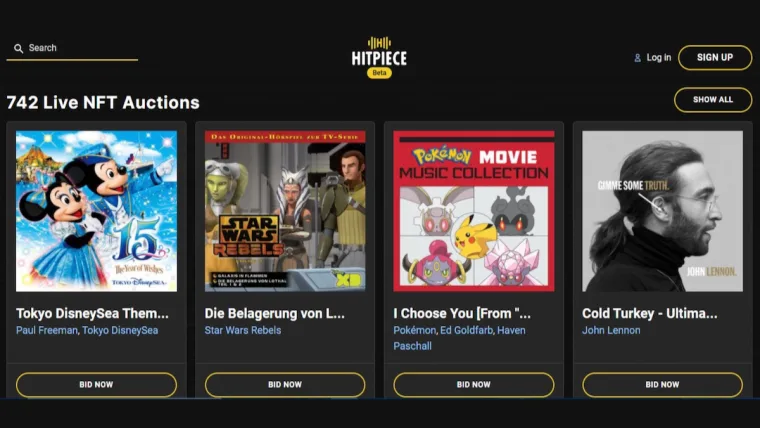“Recent descriptions of your clients’ operations include terms such as ‘scam,’ ‘utter sham,’ ‘immoral,’ ‘unethical,’ and ‘fraudulent.’ All of which, unsurprisingly, are spot-on.”
The recent uproar surrounding a company’s audacious move to upload entire music collections as NFTs was entirely justifiable. While the actual number of songs minted by HitPiece remains ambiguous, the intent was glaringly evident. The company reportedly utilized the Spotify API to extract copyrighted music along with accompanying artwork, aiming to resell these as NFTs. As anticipated, this act sparked widespread outrage and a barrage of legal challenges. Now, the RIAA, the foremost authority in the US addressing such copyright violations, has stepped into the fray.
Late on Friday, the RIAA issued a statement, branding the company as a “dubious” and “fraudulent entity.”
“With the burgeoning interest in innovations like NFTs among music enthusiasts and artists, there’s inevitably an opportunist lurking in the shadows, ready to capitalize,” remarked RIAA’s Chairman and CEO, Mitch Glazier. “Given the extent of deceit and the potential threats HitPiece and its ilk pose to both fans and artists, we felt a pressing need to promptly champion transparency and integrity in the industry.”
The RIAA has forwarded a formal notice to HitPiece’s founder and their legal counsel (who undoubtedly has his hands full), mandating an immediate halt to all copyright infringements. The notice also requires a comprehensive disclosure of all site transactions and earnings to date, and a detailed record of every auctioned NFT and artwork.
In a scathing communication to HitPiece, RIAA’s Senior Vice President of Litigation, Jared Freedman, pulled no punches.
“Recent descriptions of your clients’ operations include terms such as ‘scam,’ ‘utter sham,’ ‘immoral,’ ‘unethical,’ and ‘fraudulent.’ All of which, unsurprisingly, are spot-on,” Freedman articulated.
“While your clients now seem to suggest that their NFTs did not incorporate any actual sound recordings (which, if accurate, could be seen as another deceptive tactic), they undeniably leveraged the names, likenesses, and copyrighted artwork of renowned artists for NFT promotions and sales. The audacious appropriation of these invaluable intellectual assets is both shocking and boldfaced.”
While a few speculated this uproar might be a mere publicity stunt, confronting the might of the RIAA could leave a company grappling with mounting legal expenses and the looming threat of dissolution.
